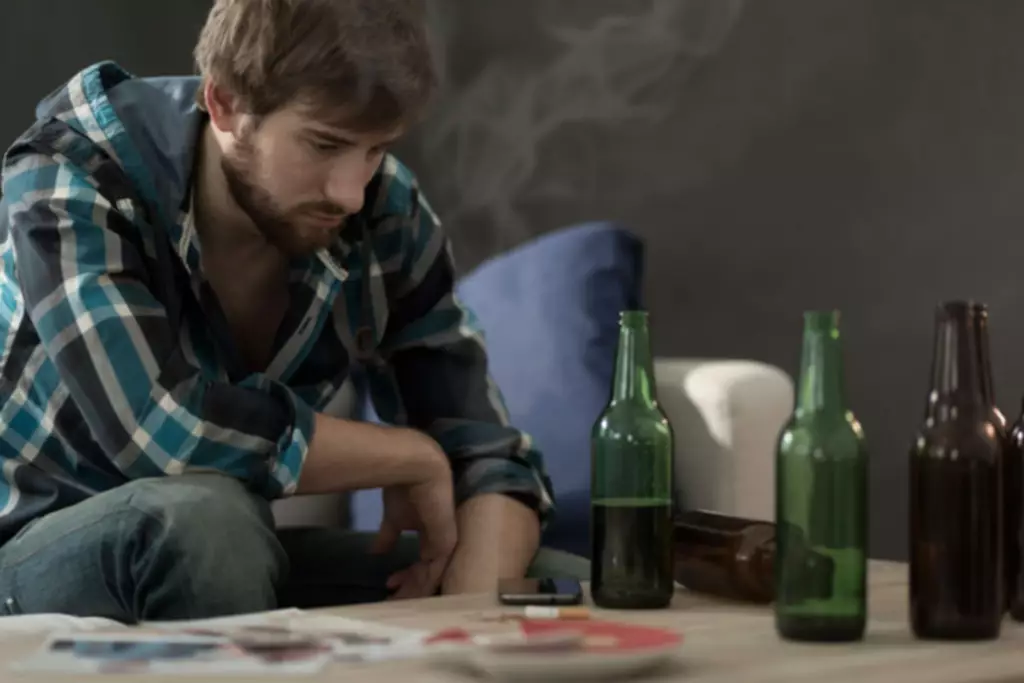
Attendance at therapy appointments and self-help meetings isn’t enough for some people in recovery. They have to commit to therapy and have faith that it will help them if they want to overcome dry drunk syndrome and enter recovery. A person may be a dry drunk during the time between becoming sober and entering recovery.
What Is a Dry Drunk? Understanding the Definition, Symptoms & Behavior

There is a stigma around therapy that should be torn down, engaging in counseling should be done by all people who want to grow, mental illness is no different. Finding a counselor who works for you is a perfect start, in fact, it would be even better to have that form of counseling connected to treatment. If you have noticed, many of these symptoms may be similar to that of being dry drunk. In the next section, we will discuss co-occurring disorders and why they are important to understand.

Dealing With Stress In Sobriety
- Alcoholics Anonymous is a 12-step program for those struggling with alcohol abuse.
- Others may experience symptoms that last months and even years after they stop drinking.
- The dry drunk syndrome (DDS) may sound like an oxymoron, but this syndrome is genuine and is more common than one might think.
- We believe everyone deserves access to accurate, unbiased information about mental health and recovery.
The Semel Institute for Neuroscience and Human Behavior states that about 75% of people recovering from AUD experience PAWS. However, there is no information on how many people these symptoms specifically affect. Sobriety is a long, ongoing process, but help, support, and treatment can make it easier.
Recovery is Possible with Effort, Commitment, & Support
- Learn more about our rehab center in Los Angeles or our addiction recovery therapeutic activities.
- You could feel as if you were walking on eggshells around the person.
- Finding an integrative treatment program that addresses both disorders at once can help address your mental health condition while supporting your recovery.
- Carrying these weighty feelings can prove challenging, and if not addressed, they can exacerbate your relationships and recovery.
Whether it’s painting, gardening, or playing a musical instrument, engaging in creative activities can enhance your emotional well-being. Therapy can offer a safe space to explore your emotions, address past traumas, and develop coping strategies. Professional guidance can be instrumental in overcoming Dry Drunk Syndrome.
Thinking that you’ve always got control of the situation when it’s clear to others that this isn’t so is a sign that you may be a dry drunk, whether you realize it or not. Getting into the same scrapes and suffering the same consequences, or a cascade of increasingly serious consequences due to dry drunk syndrome is another undeniable aspect of the condition. It’s also crucial to identify and manage other mental health issues like depression, anxiety, PTSD, or anything else that may have sparked a relationship to alcohol as a coping mechanism.
The dry alcoholic syndrome can be avoided by treating the core issues of alcoholism. Be aware of and on the lookout for the symptoms that indicate slipping back into old ways of thinking. If one hasn’t undergone behavioral therapy or counseling that targets people who abused alcohol, it is advised to enroll in such a program. For many people in recovery, the expectation after going through an alcohol rehab program is to return to their earlier “normal” lives and function independently and efficiently without drinking. But the “normal” life they had once led is probably still filled with those stressors that had triggered their addiction in the first place. With their coping mechanism not in place, it is not hard to understand why some people start to romanticize their drinking days.

According to experts on effective recovery methods, this is a problem. Humility plays a major role in any successful recovery, and someone who cannot accept responsibility for their circumstances is unlikely to find success in their journey to sobriety. The dry drunk, like anyone seeking to overcome addiction, has to genuinely want recovery over everything else. That requires a commitment to change behavior, implement effective coping strategies, build and maintain a strong support network, and ask for Halfway house help when needed. Quitting alcohol is a necessary step for living a life of sobriety, but there is more to a successful recovery than just getting sober.

Dry Drunk Syndrome Symptoms
It’s best to have some kind of extra support during recovery, whether that’s a 12-step program or a regular appointment with a therapist who specializes in addiction counseling. Having helpful coping techniques in place can make it easier to manage distressing emotions and thoughts about drinking. These behaviors and emotional concerns can strain your relationships and interactions with others, especially if alcohol use has already had a negative impact on your relationships. Identify areas in your life where you want to grow and set specific, achievable goals.
Dry Drunk vs. Sober
- Can you take any proactive steps to reduce their stress level or recommend any steps they can take on their own?
- This may lead to a lack of insight into the underlying causes of their alcohol use disorder.
- Knowing the signs that signal impending relapse can help the dry drunk initiate proactive steps to get through the crisis.
- If you feel that any of our content is inaccurate, out-of-date, or otherwise questionable, please contact at
- It is impossible to discuss dry drunk syndrome without discussing mental health.
Numbing oneself with substances stunts emotional growth and causes our moral compass to malfunction. Removing chemicals from the body is certainly the first step but it doesn’t fix years of maladjustment to life. Once detox dry drunk syndrome symptoms is completed, the next step is to begin one-on-one therapy, group sessions, family counseling if appropriate, and other recovery programs.
